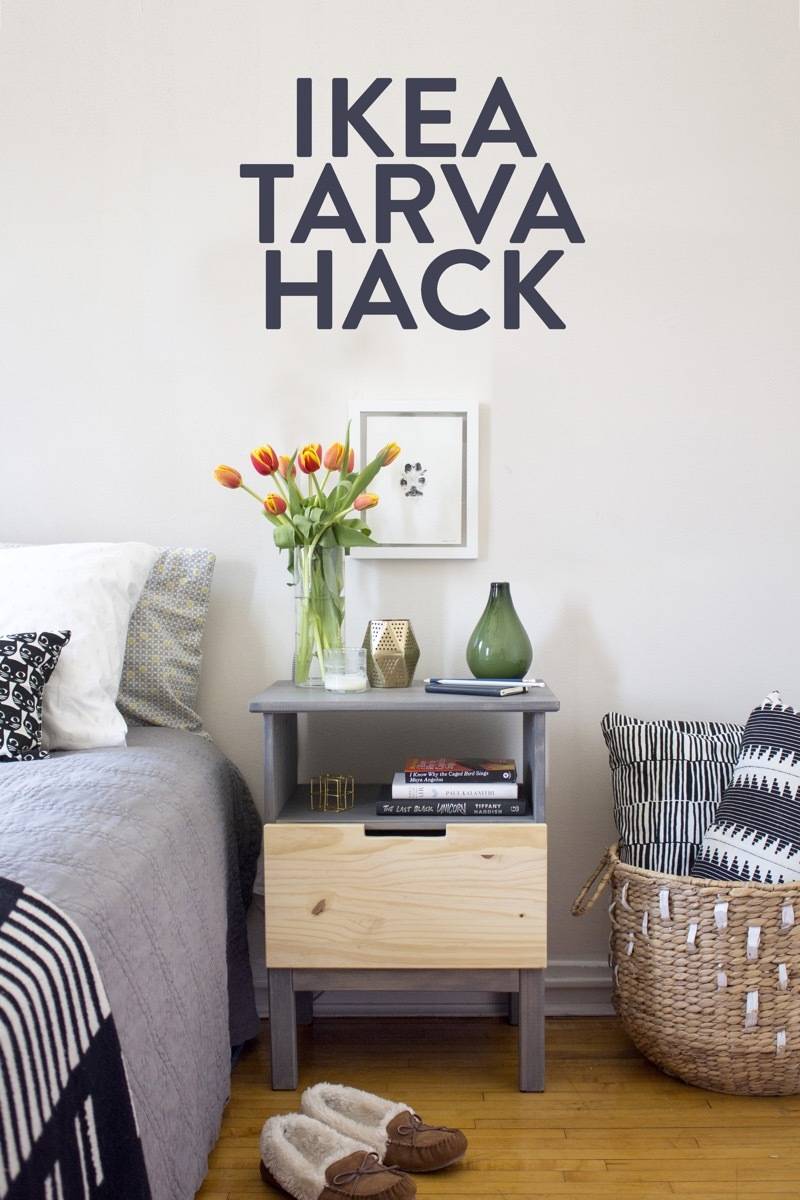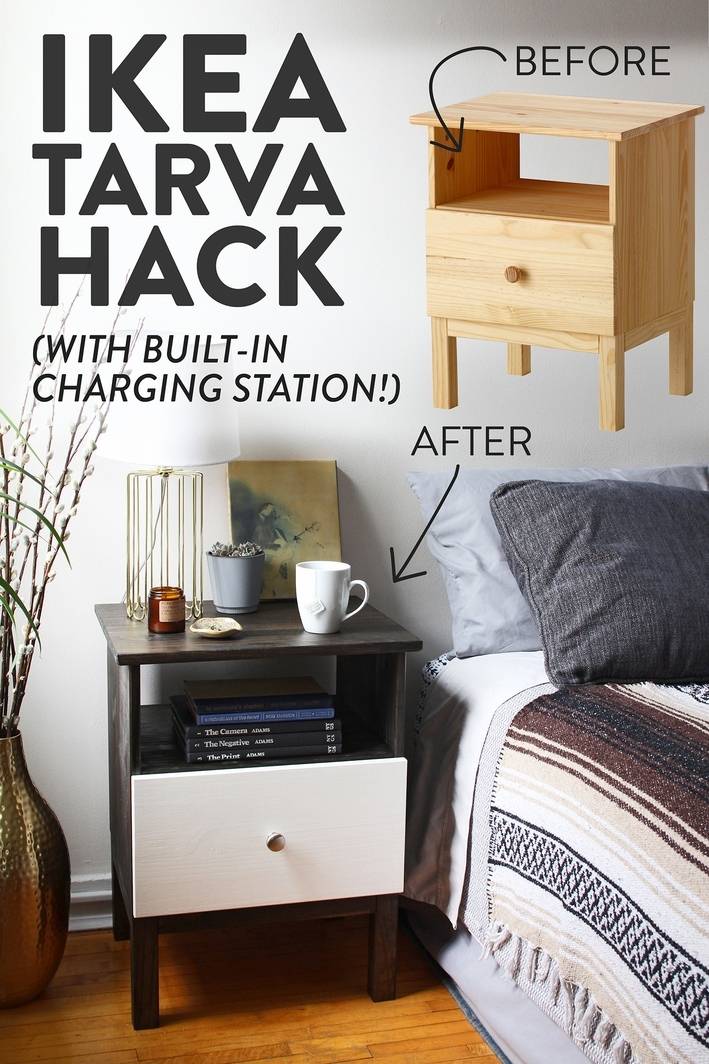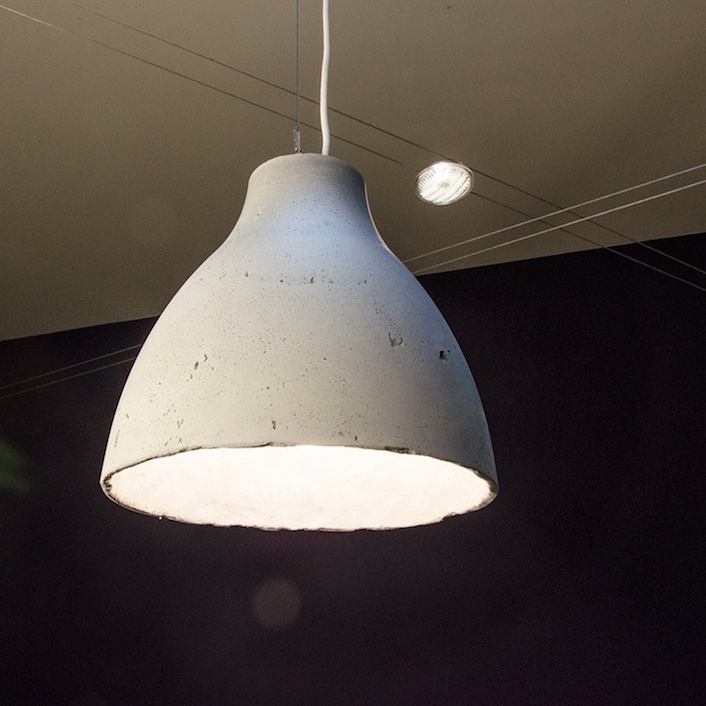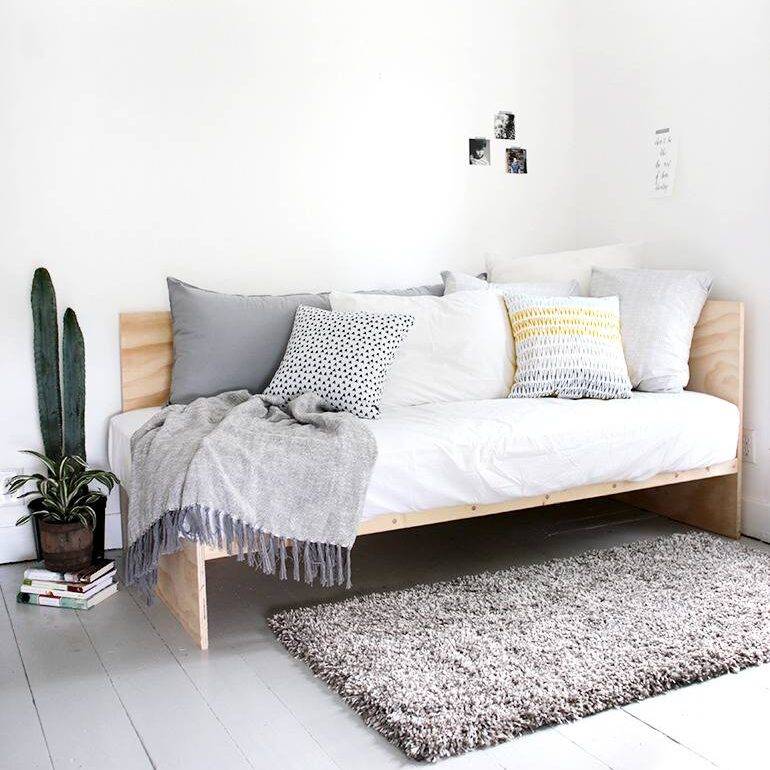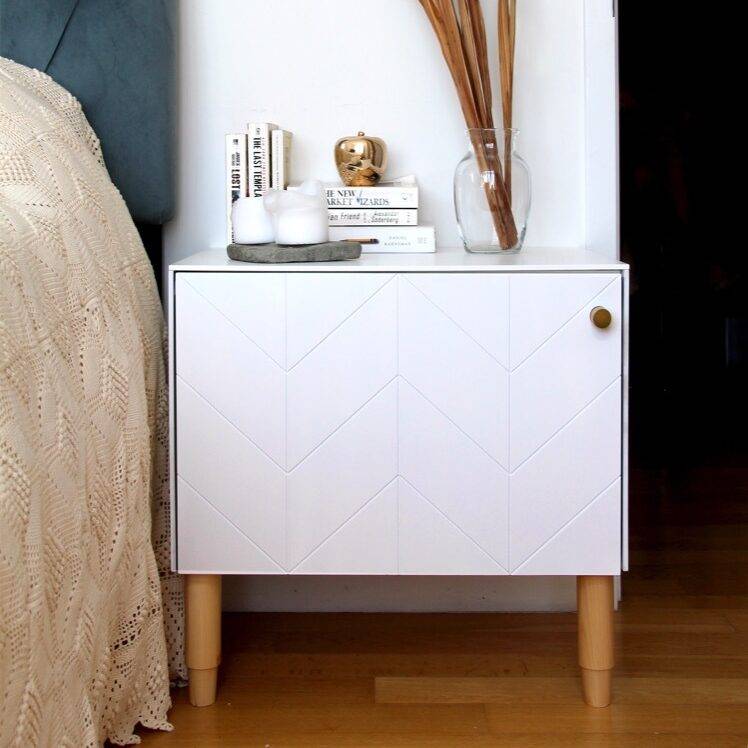One of the easiest ways to change up a piece of furniture is to switch out the hardware – but what happens when the hardware is abandoned completely? When my wife found this nightstand during a recent trip to IKEA, she immediately drew inspiration from a different piece of furniture in our house – our hardware-less credenza. Could we replicate the cutout drawer handle on her new nightstand? Turns out, we could! Trading a little extra work for the extra cost of new hardware, here’s how this IKEA nightstand hack worked out.
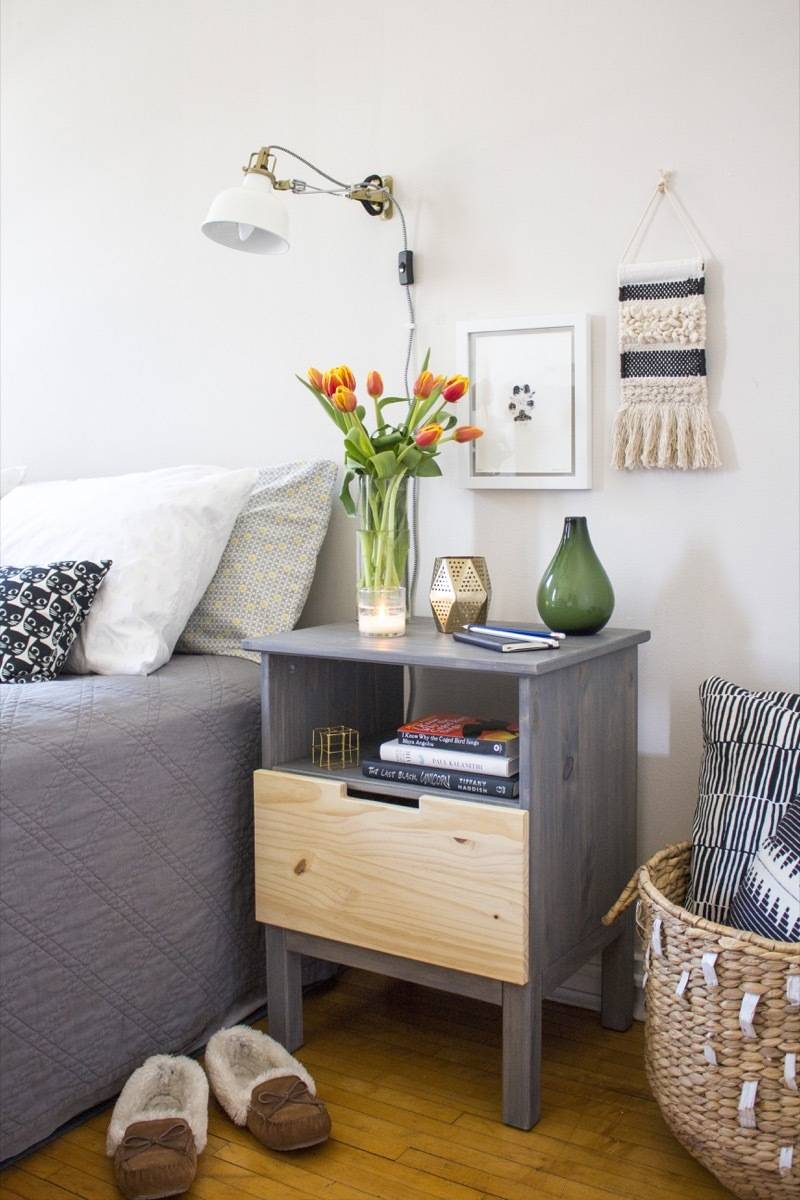
So, why go without hardware? Other than looking sleek, a cutout cabinet pull is great for small-space dwellers. How many times have you caught your clothes on a handle as you were trying to move past a drawer or cabinet? Not an issue with this type of handle. There are lots of cutout shapes you can make when going hardware-less (here’s a whole article on cutout eye-candy), but for this IKEA nightstand hack, I opted for an easy notched look.
Materials
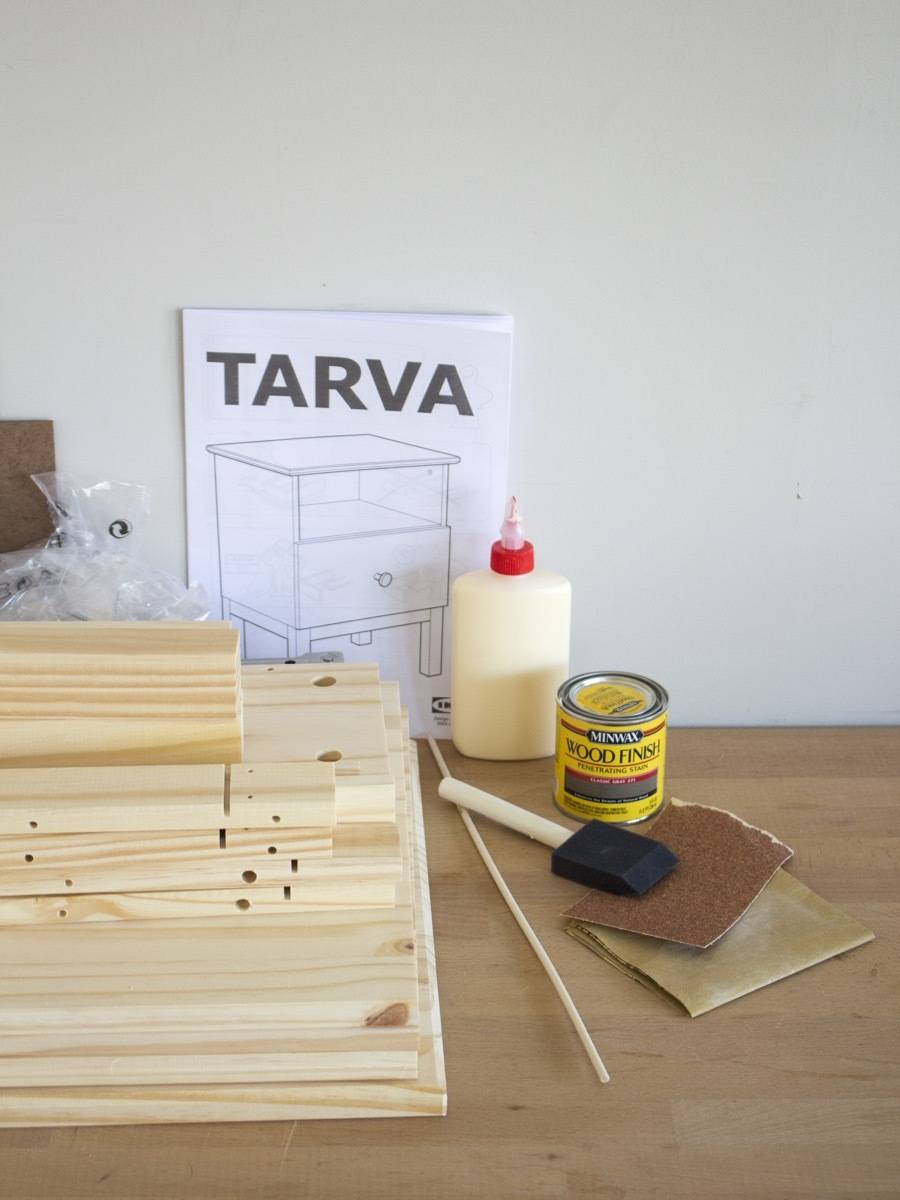
- IKEA Tarva nightstand (you can also purchase via Amazon)
- 3/16″ or smaller dowel and wood glue
- Sandpaper in assorted grits
- Wood stain in classic gray, and foam brushes
- Polyurethane or other wood sealant
Step
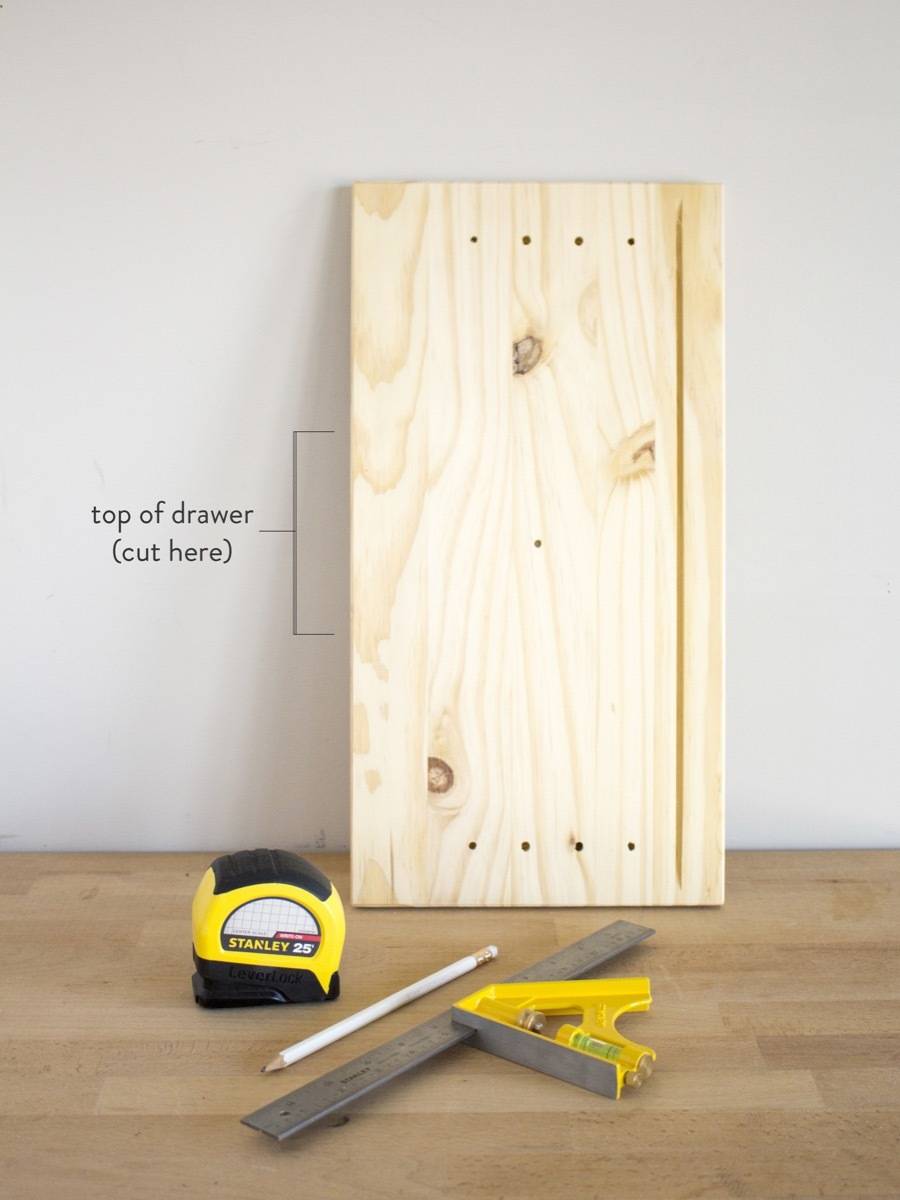
To create the cutout cabinet pull, first you need to determine where the handle should go. Grab the front drawer piece of the IKEA nightstand (it’s easily identifiable by the hole drilled right through the center – where the drawer handle would normally go). The edge with the cut line running across the back is the bottom of the drawer. The top edge has no line.
To make your measuring and marking much easier, use a combination square.
Step
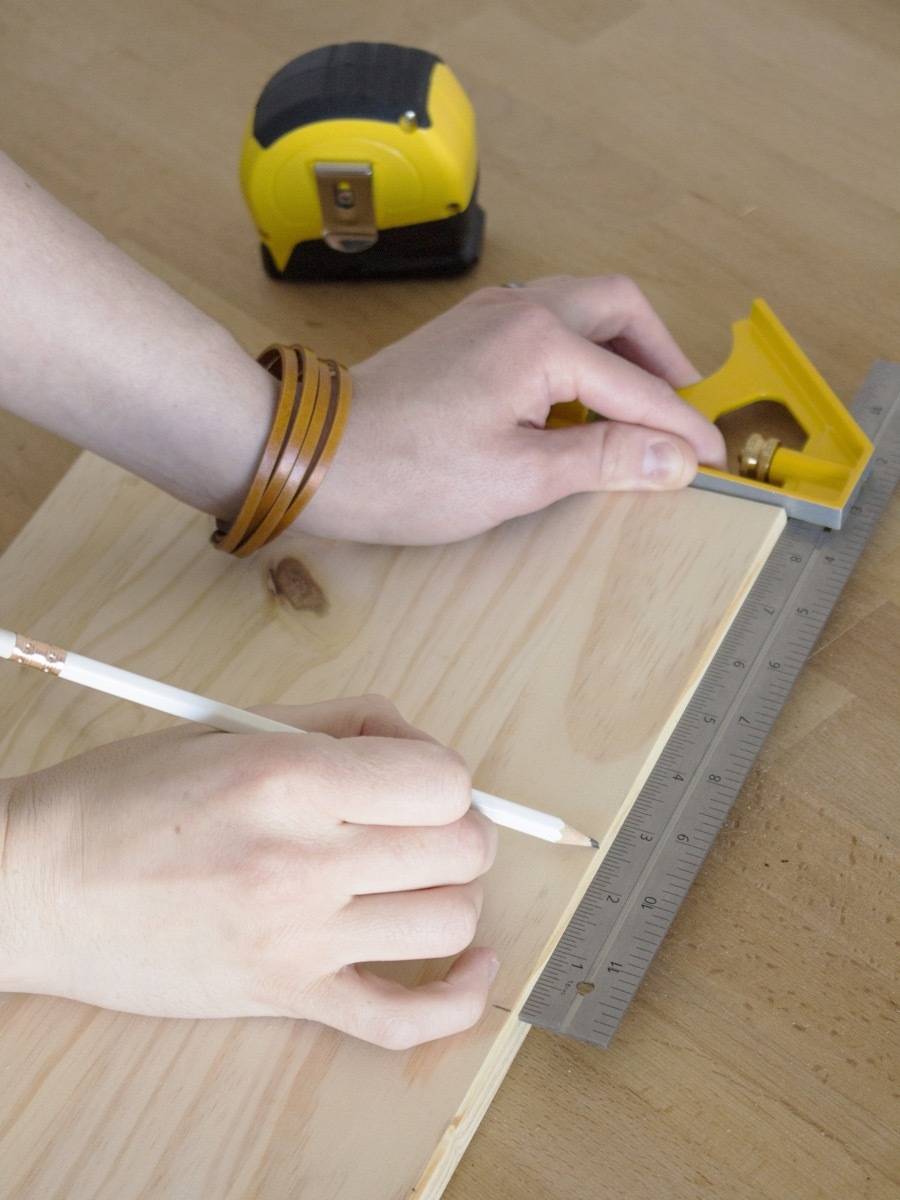
Find the middle of the top edge of the drawer front (spoiler: it’s 8 and 5/8ths inches… although you should double-check your piece, since variations can occur in the factory). Mark the middle, then mark 2 and 1/2 inches out from the middle for a 5″ handle.
Measure 3/4″ down from the top of each end of the handle, then connect the dots.
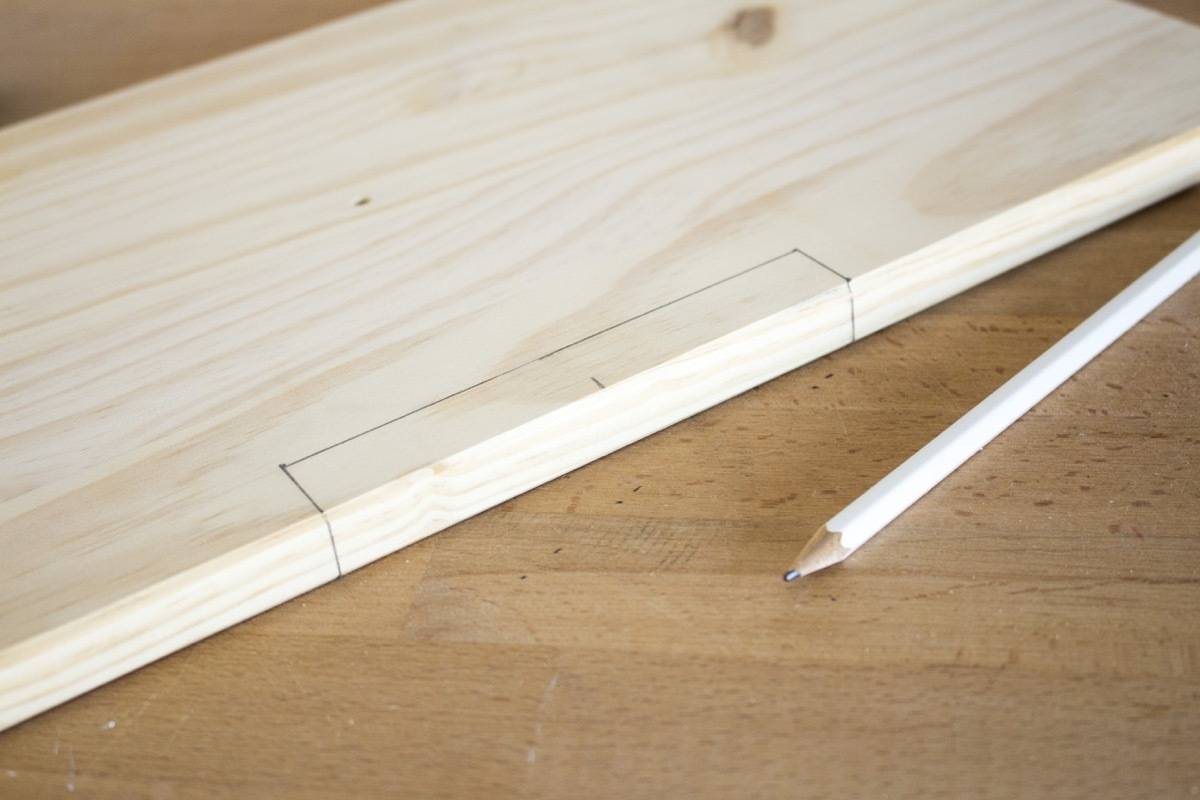
Carry the marks around the top of the board. This is much easier to do with a combination square – simply line the square up with the edge of the mark, and trace across. Repeat the measurements on the back of the board. When finished, the back and front of the boards should have the same markings.
Step
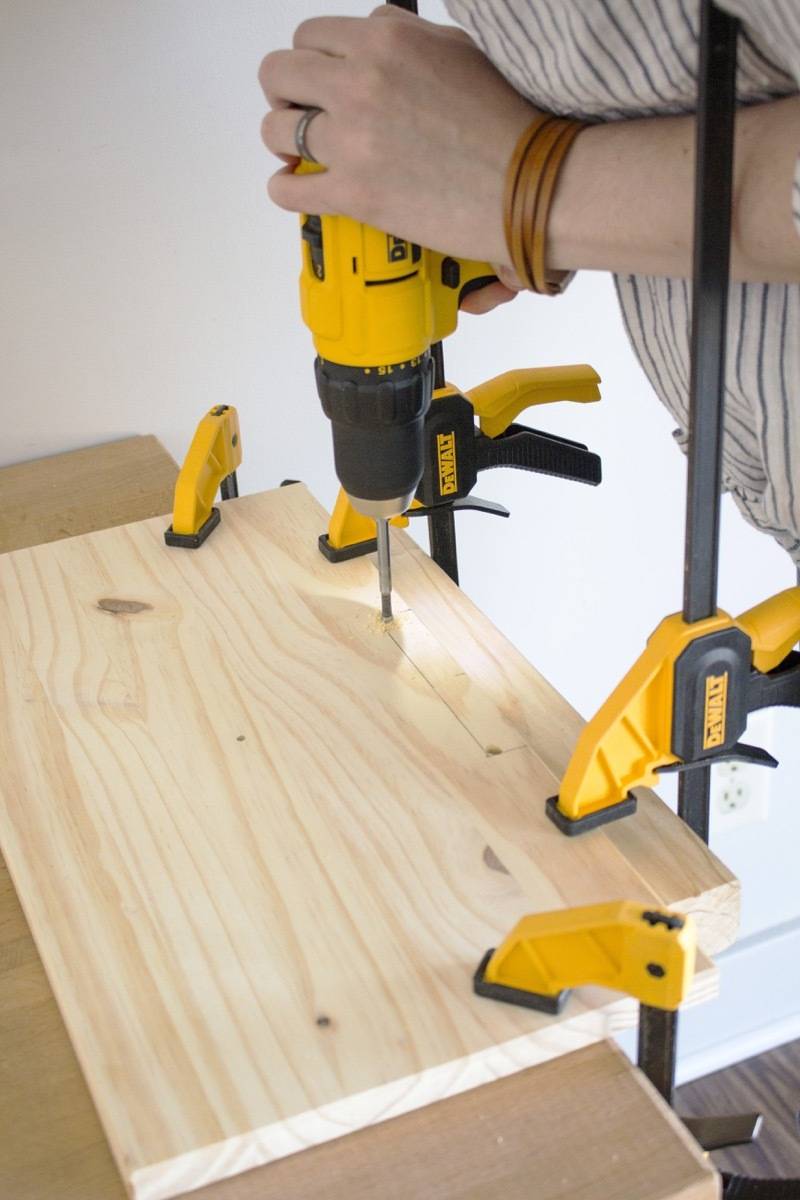
Grab a power drill and a small forstner bit. You’ll need a forstner bit versus a regular drill bit because the Tarva nightstand is made of relatively dense wood, and a regular drill bit will only eat away at the wood.
Securely clamp the drawer board to a sturdy surface, with the edge of the handle hanging over the edge. Next, grab a piece of scrap board and clamp it behind the handle where you’ll be drilling. The reason we’re doing this is because if you drill straight through your drawer and into the air, you’ll blow out the back. Drilling through the drawer and into more wood will keep the back nice and not-splintery.
Align the forstner bit in the corner of your handle markings. Manually rotate the forstner bit around to ensure you’re not going over the marked lines. Then drill away. Drill in both corners of the handle.
Step
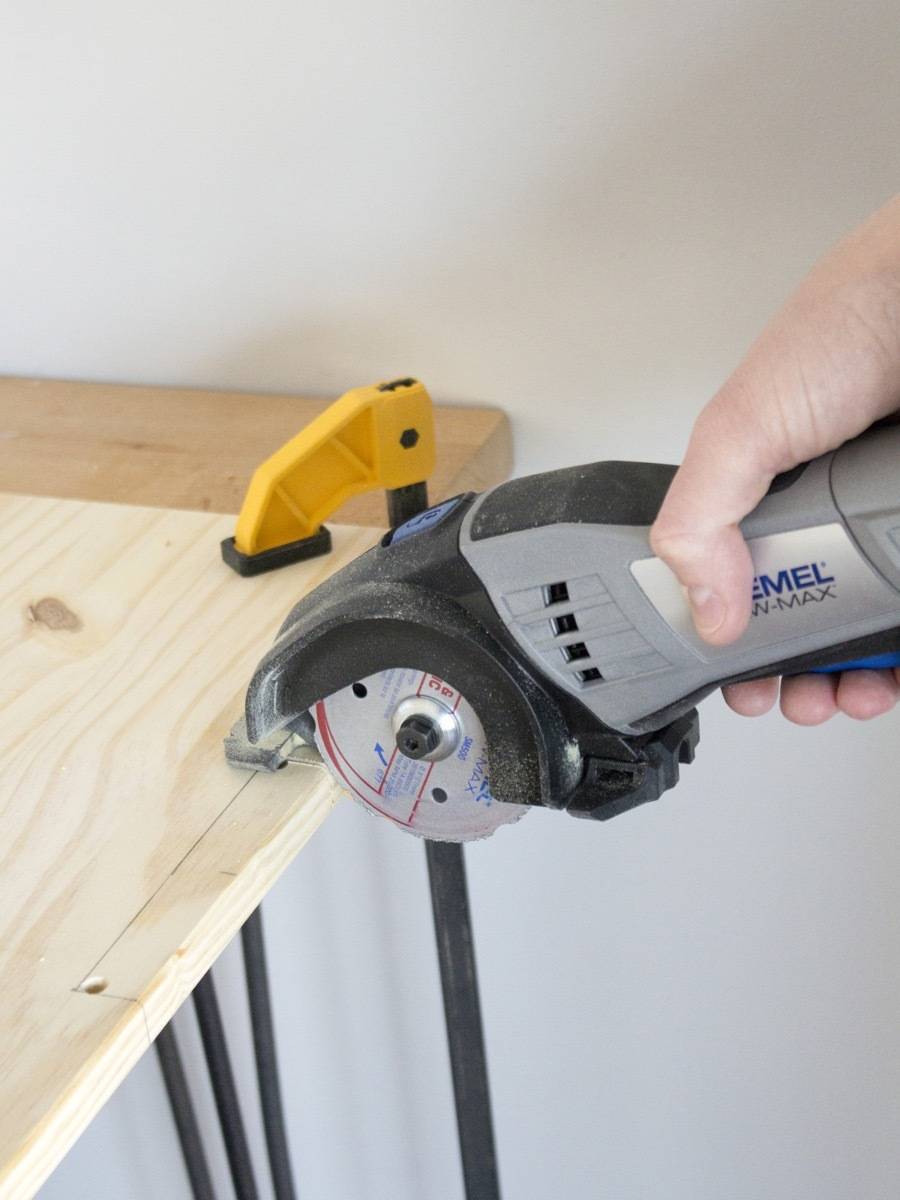
Remove the scrap wood you were drilling into, and now it’s time to cut. There are a few different types of cutting tools you can use to make this cut happen. The easiest would be with a bandsaw, but I don’t expect anyone to have the room/funds for this kind of tool in their life. A jig saw is the ideal tool for this cut. I had a Dremel Saw-Max at my disposal, so that is the tool I used. I like this tool because secretly I’m scared of big power tools, and this little guy is a lot less intimidating (which is perhaps a bit misleading, because it seriously cuts). If you want to go manual, use a coping saw.
Cut along the 3/4″ marks, then use the holes you drilled to turn the blade 45º, and cut across.
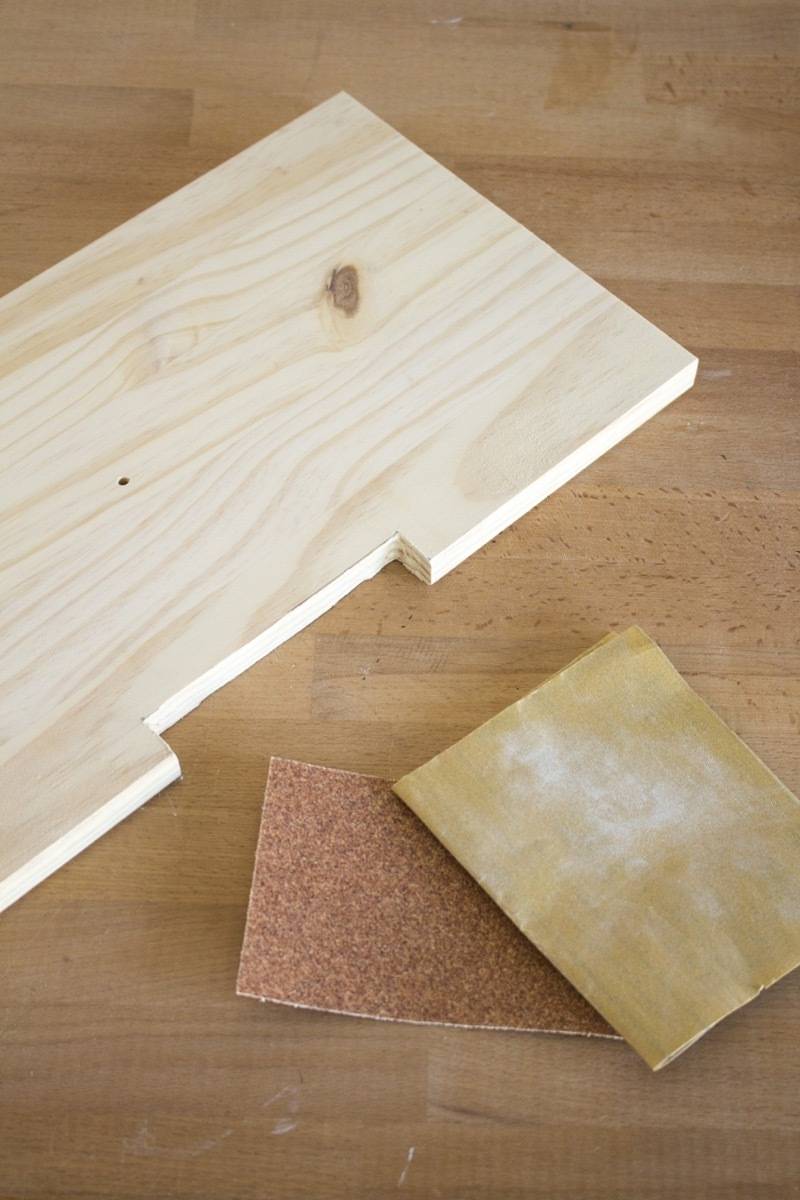
Sand your new handle, starting with rough sand paper and working your way up to fine. TBH, I used an oscillating sander for this step because my arms got tired.
Step
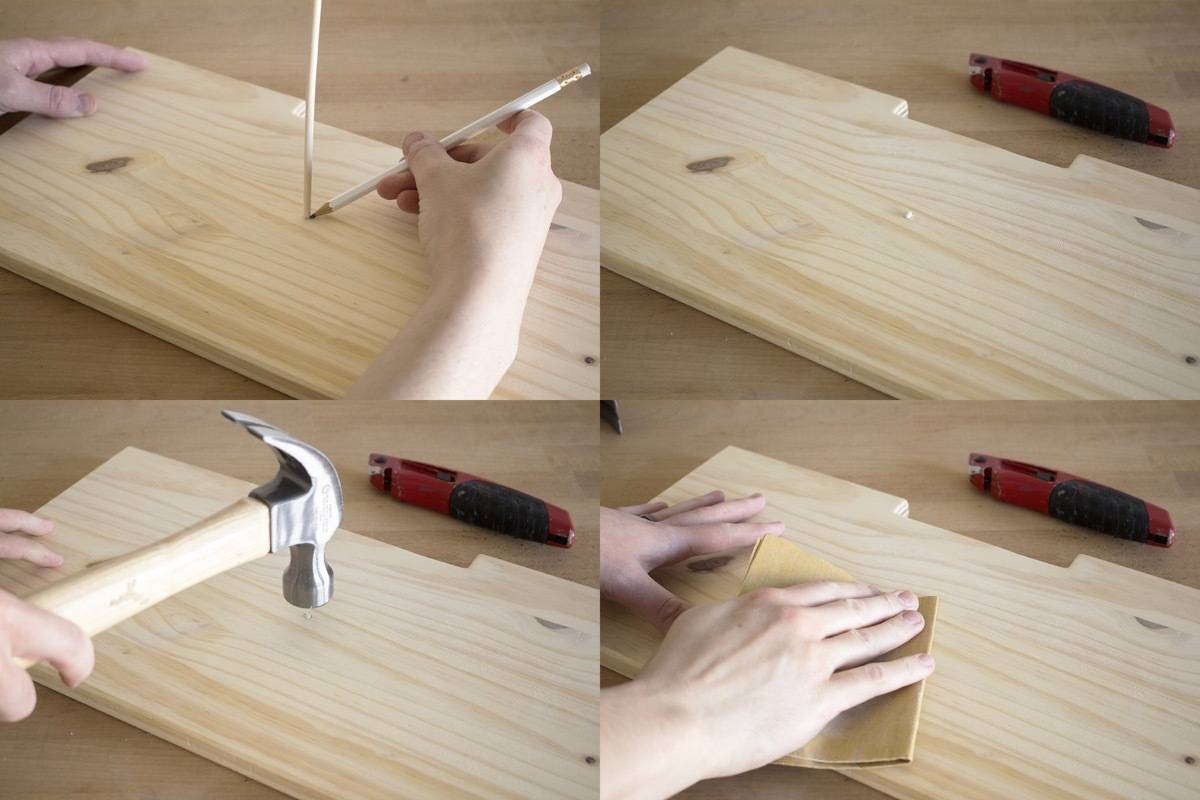
Now to fill the factory-drilled hole created for the original handle. If your dowel fits into the hole – great! If it’s too big, sand it down until it fits.
Insert the dowel into the hole from the front of the drawer board, and mark where the dowel stops. Remove the dowel, and use a box-cutter to slice the dowel at that pencil-marked point. Insert the small cut bit into the hole, and and hammer it into the wood as far as it will go (use gentle strikes – you don’t want to damage the board). Sand down any remaining dowel that’s sticking up.
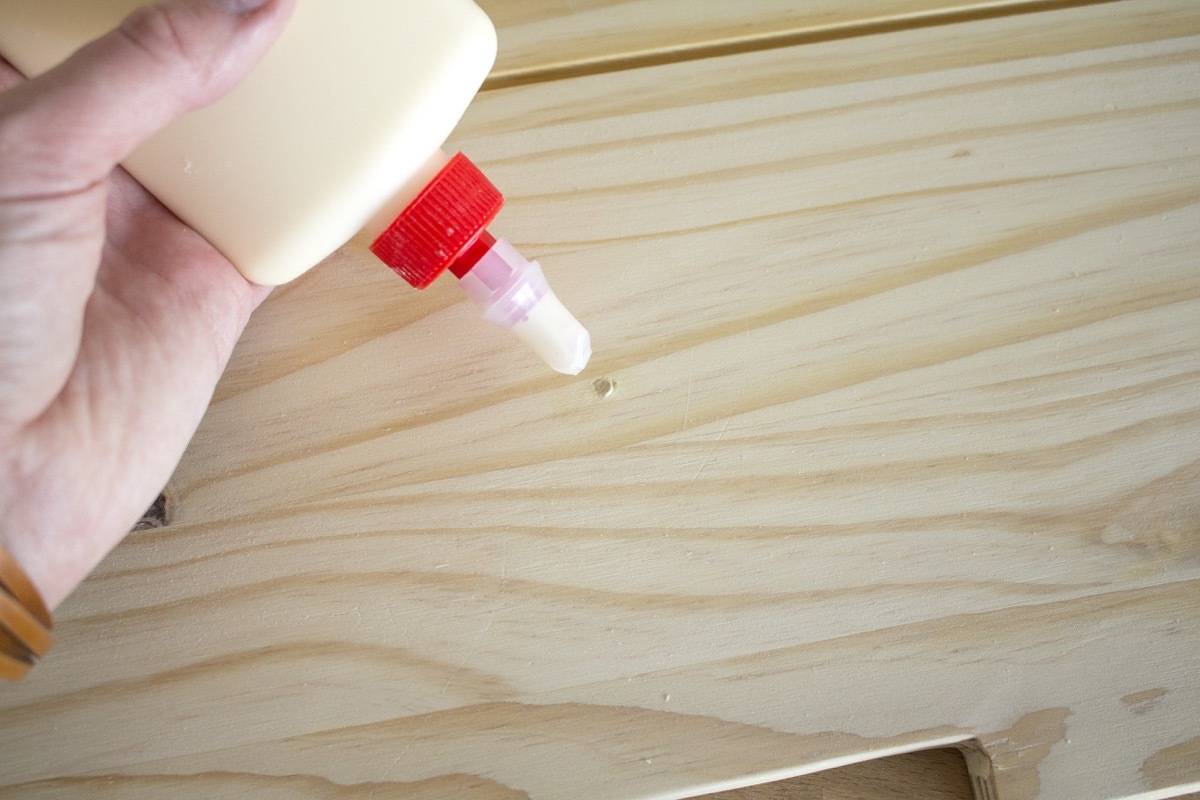
On the back of the board, add a drop of wood glue to fill in any cracks. Wipe away any excess glue with a wet paper towel. Let the glue dry, then sand down the back as well.
Step
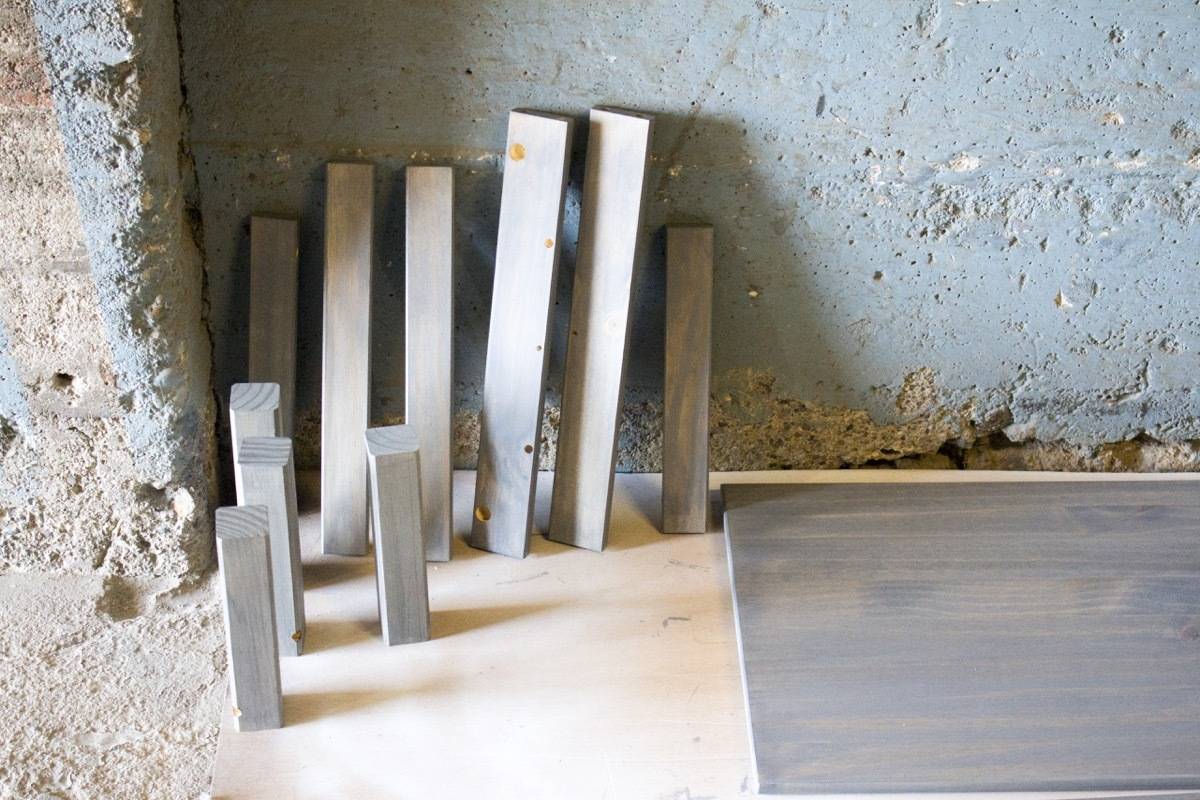
Stain and seal the remainder of the pieces. I only used one coat of gray stain for this piece, then sealed it with polyurethane. You can stain the other drawer pieces if you like, or leave then natural (which is what I chose to do).
After everything has dried, all that’s left to do is assemble! Just like with the last IKEA nightstand hack I did, I left off the backboard in steps 20-21 of the instructions. This way we’re able to feed an electrical plug through the drawer, and my wife can charge her phone at night in a tidy manner.

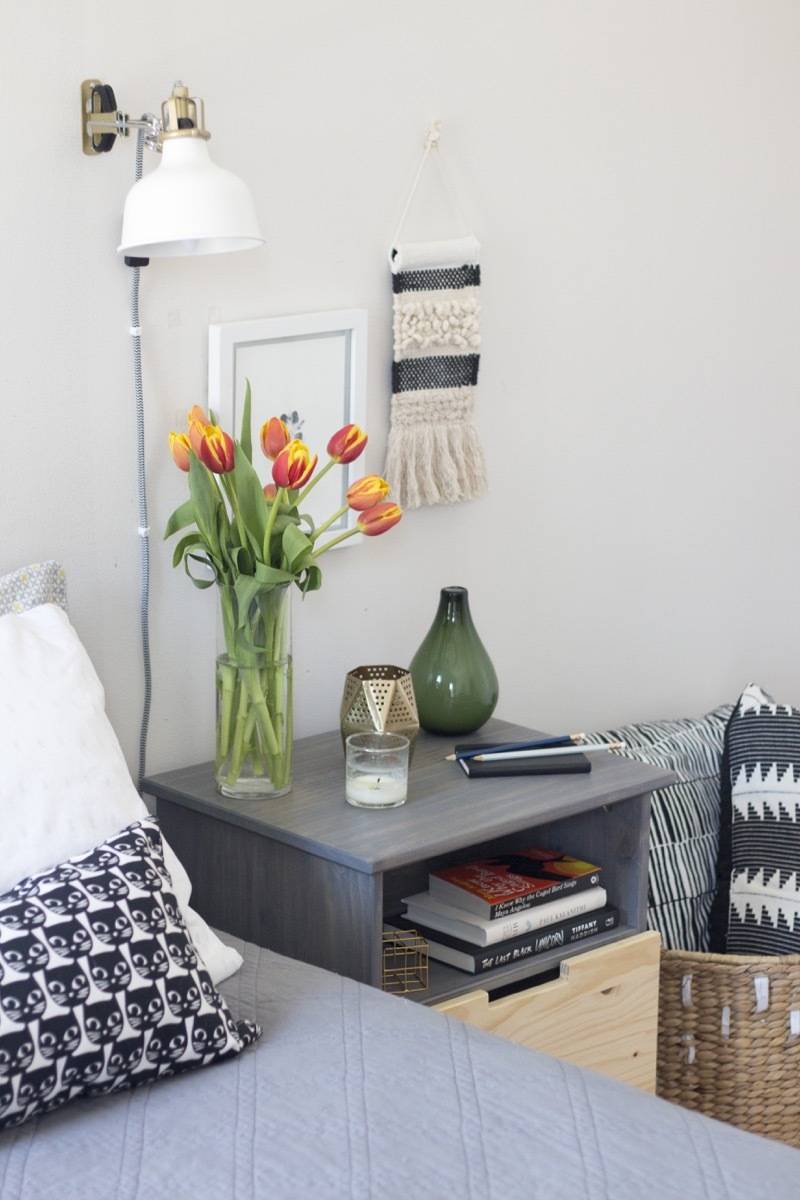
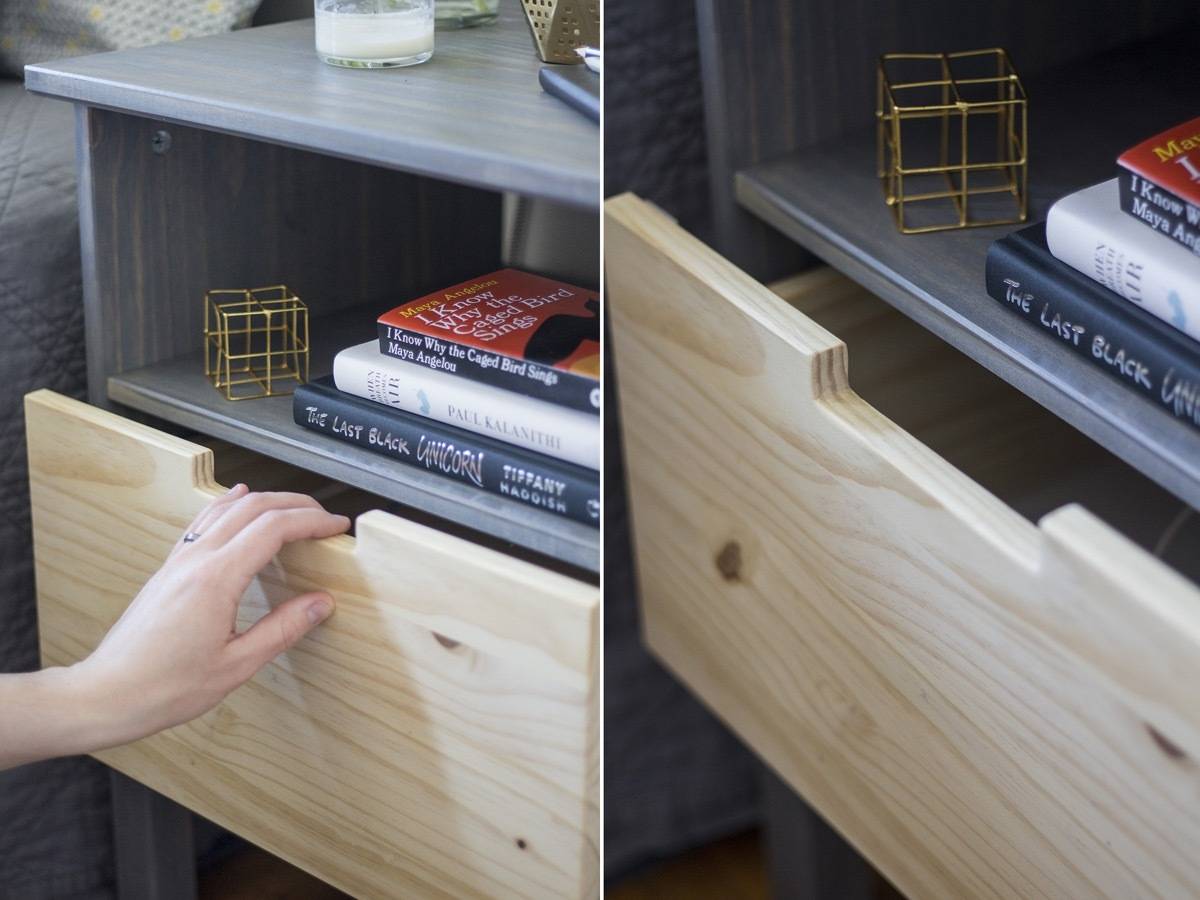
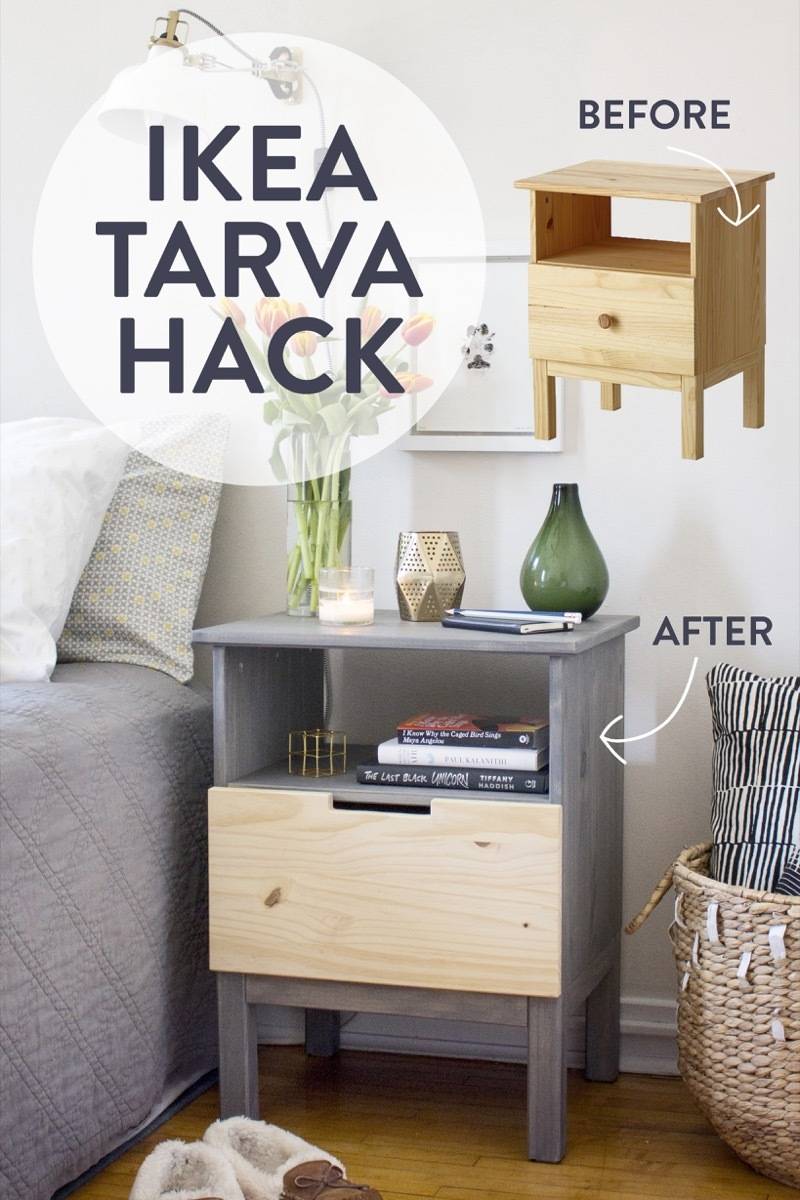
So, think you’ll go bare on your next IKEA hack or furniture makeover? If you’re feeling nervous about creating a cutout handle for the first time and are wary to just start chopping into a brand new piece of IKEA furniture, practice on a piece of scrap wood first. Get the hang of the process, then move on to the actual furniture. That’s exactly what I did before I embarked on this IKEA nightstand hack. Better safe than sorry. Happy hacking!
